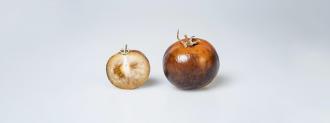Sometimes, the best place to make medicine isn’t a laboratory — it’s a tobacco plant or a chicken egg.
A drug produced in (or from) a living creature is called a biopharmaceutical, or biologic, and the category includes medications to treat diabetes, breast cancer, arthritis, and a host of other diseases.
The latest to join their ranks is a Parkinson’s disease treatment that researchers just figured out how to grow using tomatoes — a discovery that could make the essential drug accessible to far more people.
Biopharmaceutical 101
Living things are basically nature’s science labs — they create different chemicals that undergo various processes, reacting and interacting in often predictable ways.
Some are naturally perfect for manufacturing a biopharmaceutical.
Viruses, for example, need to be in living cells to replicate, and every year, we need a new supply of the flu virus to turn into vaccines. About 70 years ago, researchers started injecting the virus into chicken eggs, letting it replicate, and then extracting it from there.
Other times, we can make living things into perfect drug manufacturers.
For example, several decades ago, researchers successfully inserted the human gene for producing insulin into some bacteria. The bacteria then started producing the hormone, which we can now harvest and purify for people with Type 1 and Type 2 diabetes.
The new biopharmaceutical for Parkinson’s falls into this second category.
Limitations of L-DOPA
There isn’t a cure for Parkinson’s, but the drug Levodopa (L-DOPA) is one of the best known treatments for its symptoms. It’s prescribed more often than any other medication for Parkinson’s, and the WHO includes it on its list of the world’s “essential” medicines.
Scientists are able to create the drug in the lab, but the synthetic version of Levodopa can cause nausea and other side effects — Parkinson’s patients have to take other drugs to combat those.
Additionally, a prescription for synthetic Levodopa costs about $2 a day, which is more than some Parkinson’s patients — particularly those in developing nations — can afford.
Some plants, like the beetroot, naturally produce Levodopa, but the quantities are tiny. Other plants create it in quantities that are worthwhile, but none are ideal sources — the seeds of the velvet bean, for example, are up to 10% Levodopa, but they’re also covered in bristles that can cause allergic reactions in the people harvesting them.
Plant Power
Now, researchers at the John Innes Centre have developed a biopharmaceutical alternative.
By isolating the gene that produces Levodopa in beetroot and inserting it into a tomato plant, they were able to get the tomatoes to contain higher levels of Levodopa — for every kilogram of tomatoes grown from the plants, they got 150 milligrams of Levodopa.
A local industry could prepare L-DOPA from tomatoes.
Cathie Martin
That’s about as much as some other plants produce naturally, but tomatoes wouldn’t be nearly as difficult to harvest. Growers would just need to ensure their pollen doesn’t spread to the wild.
“You could grow them in screen houses, controlled environments with very narrow meshes, so you would not have pollen escape through insects,” researcher Cathie Martin said in a press release. “Then you could scale up at relatively low cost.”
“A local industry could prepare L-DOPA from tomatoes because it’s soluble and you can do extractions,” she added. “Then you could make a purified product relatively low tech which could be dispensed locally.”
We’d love to hear from you! If you have a comment about this article or if you have a tip for a future Freethink story, please email us at [email protected].






